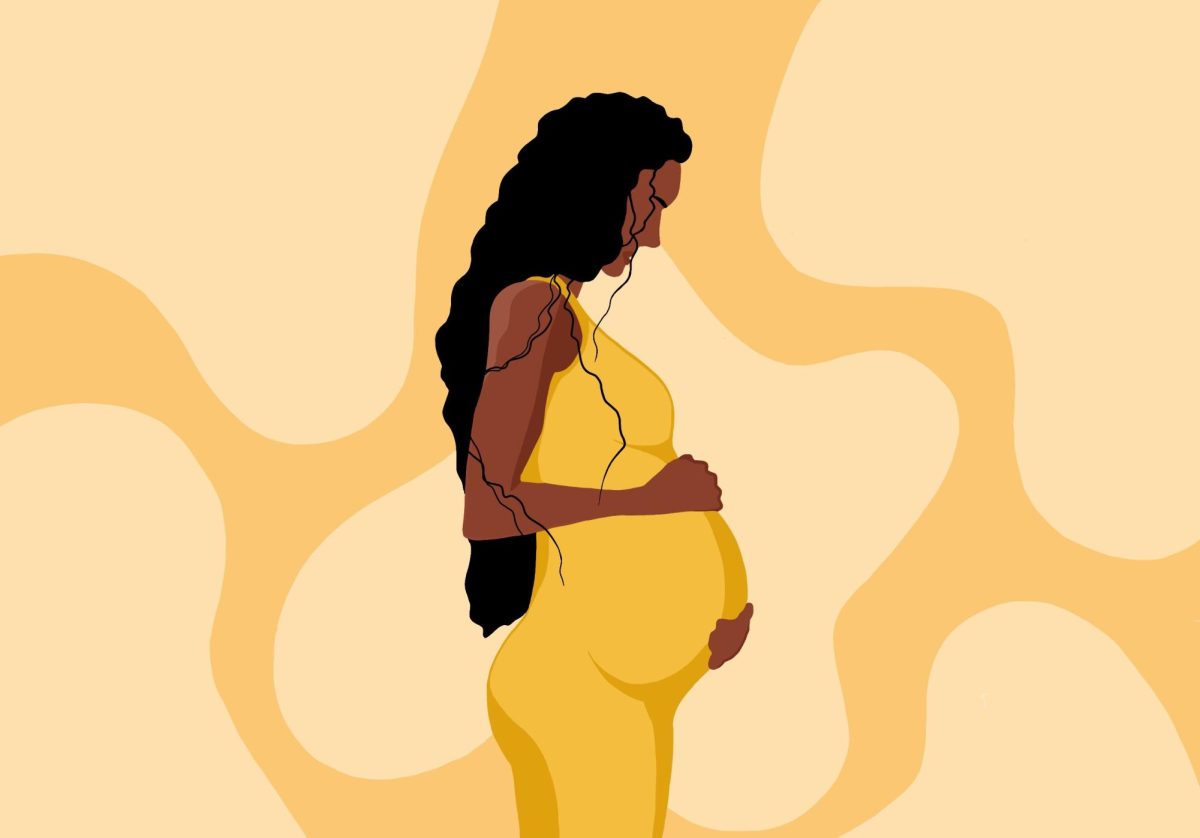Created in 2021 by Black Mamas Matter, Black Maternal Health Week addresses systemic health issues facing Black mothers.
Over 80% of pregnancy-related deaths are preventable, but Black women are three times more likely to die from a pregnancy-related death compared to white women, according to data from the Centers for Disease Control.
To bring awareness to these disparities, the Wilder Foundation is holding the Black Maternal Health Week Celebration at the Wilder Center on Monday. This is the second year of the Wilder Foundation’s celebrations for Black Maternal Health Week.
The event is sponsored by the Minnesota Health Department and is a collaboration with the Wilder African American Babies Coalition and Projects, Planned Parenthood and Healthy Black Mothers.
Wilder Foundation spokesperson Angela Moore Smith said events like this celebration highlight the systematic issues hurting Black women.
“I’m excited for our panel and excited for us to have conversations and also educate, but also empower and celebrate the good things that are going on with people who are committed to the cause and doing the work that needs to be done,” Moore Smith said.
Long-standing systemic biases in the healthcare industry cause these disparities, Dr. Asha Hassan, a University of Minnesota professor in the Department of Obstetrics, Gynecology and Women’s Health, said.
“We understand a lot of this stems from our history in this country and contemporary problems of structural racism,” Hassan said. “That can, in turn, play a role in negative outcomes such as preterm birth or some other adverse issues related to outcomes around birth.”
Black mothers’ previous experiences of stress from racism can also be passed down through generations and negatively impact the baby, Hassan said.
“Stress that a Black mother experiences during pregnancy, such as the stress from living in a racist world, can be passed down to her child. This happens through epigenetics, where the stress can alter how genes are expressed,” Hassan said.
While the disparity exists, health experts say steps are being taken to remedy it in Minnesota and across the country.
Public health specialist Elizabeth Govrik-McCoy, who is also the spokesperson for the Maternal Child Adolescent Health Division in Minneapolis, said she is trying to implement more culturally informed solutions in healthcare education.
Govrik-McCoy’s division gives information about maternal vaccines to people and said the information can help Black mothers and build trust.
“There are misconceptions sometimes because of the historic trauma and mistrust in higher systems,” Govrik-McCoy said. “It’s our job to make those provider referrals or being able to share this is safe for you right now during pregnancy, because there are vaccines that pregnant women should be getting.”
One way Govrik-McCoy is trying to improve healthcare for Black women is by implementing doulas in more spaces and informing women on important vaccinations.
Moore Smith also said she hopes the week allows people to learn more about the problem beyond the statistics.
“When talking about just the gaps, you’re talking about lack of resources in education, and for prenatal care and the hospitals, you’re not seeing people that look like you,” Govrik-McCoy said.
Both Moore Smith and Govrik-McCoy said they want the government to give more funding and legislation to programs regarding Black maternal health.
“We need dollars. We need funding. Because Black mothers, they deserve better. Babies deserve better,” Moore Smith said. “We definitely need more collaboration, more partnership and more people willing to listen and roll up their sleeves.”
Correction: A previous version of this article misnamed the Wilder African American Babies Coalition and Projects as the Wilder Foundation Coalition of Black Babies. It also listed Govrik-McCoy as a worker at CityMatch as a doula, but she is working on a project with CityMatch, who supports doulas.















TA
Apr 9, 2025 at 8:50 pm
Literally none of this stems from “structure racism” and all of it stems from black women having obesity related pregnancy complications and not showing up to prenatal appointments at a rate significantly higher than any other group.
Surprised this piece didn’t discuss the recently discredited study that found (incorrectly) that black women have better outcomes with black doctors. What the study *did* correctly find though is that white infants die at a much higher rate when they see black doctors. That info was struck from study though for unclear reasons.
How much longer do we all have to pretend like this stuff is everyone else’s fault?
Say what?
Apr 9, 2025 at 6:54 pm
Some 75% of Black babies will not have a biological father living with them. How is this not a huge stress factor for the mom? Also, I do not buy that Black moms can mysteriously “pass along” the stress of racism for generations. If this were true, every Jewish baby would be negatively impacted. This is not an issue with them.
SGEagan
Apr 9, 2025 at 3:03 pm
Will there be any effort to study the health outcome disparities of babies born within or outside of marriages?